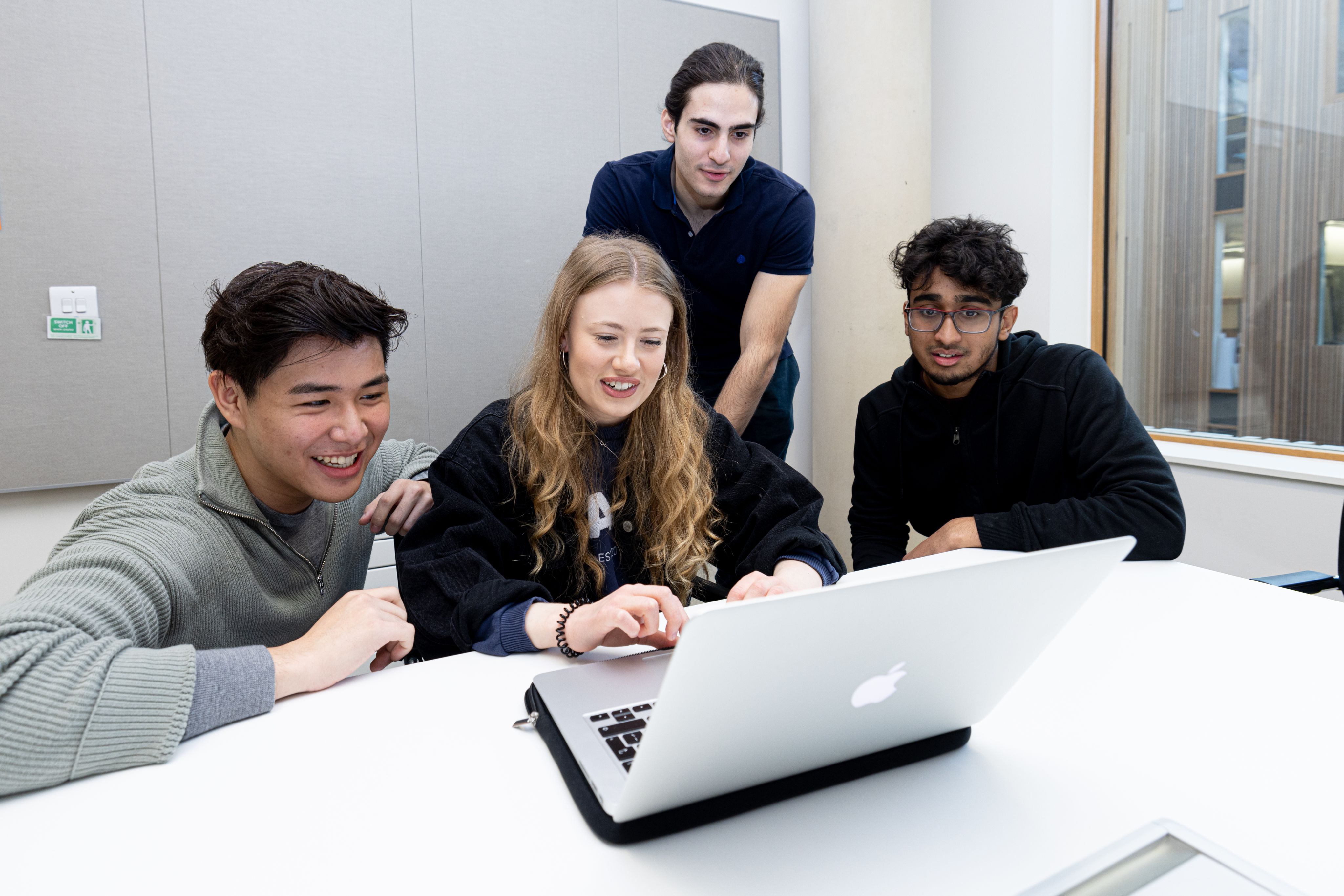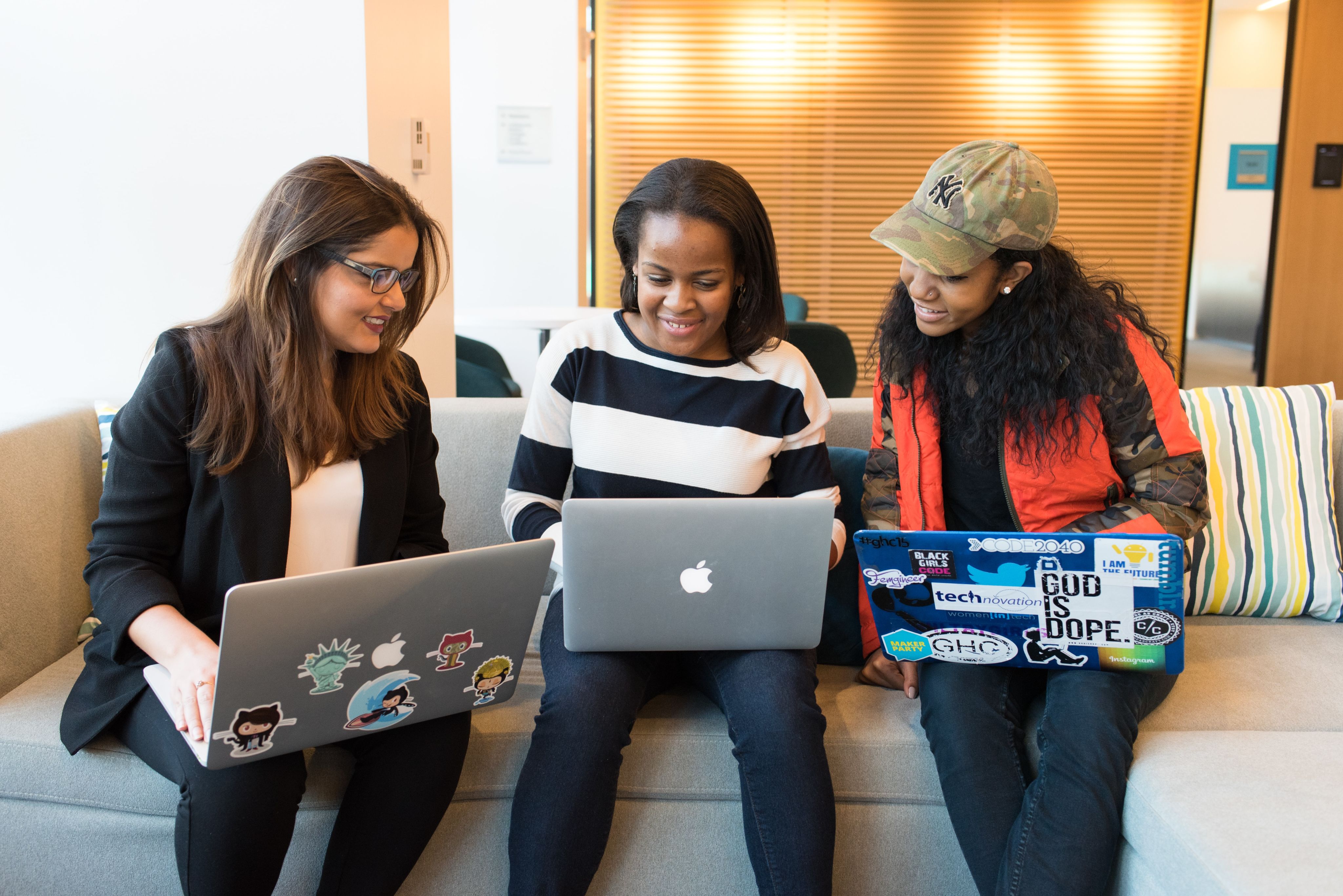About us

Our mission
We use fundamental science to solve some of the world's biggest challenges.
Our multidisciplinary department houses expertise in science, engineering and mathematics fields, with an overarching drive to deliver real impact in the areas of sustainability and healthcare.
Our undergraduate and postgraduate courses, as well as our research programmes and Centre for Doctoral Training, develop fundamental understanding of molecular processes and systems, equipping students with the skills to tackle global issues, such as climate change, accessible medical care, and sustainable manufacturing.
Professor Clemens Kaminski, Head of Department, introduces our vision.
Our values
This Department welcomes staff and students from all over the world and we are proud of our diversity. We have people from many cultures and backgrounds, and many different academic backgrounds, achieving great things in CEB.
Athena Swan Award
The Department recognises the importance of creating of a diverse work and study community, in which all individuals are supported to achieve their full potential, and all individuals are treated fairly and equally. We are striving to achieve this, and our ongoing efforts have been recognised in our receipt of a Bronze Athena Swan Award in 2016, which was renewed in the 2020 admissions round. View our 2020 submission and action plan.
What is Athena Swan?
The Athena Swan Charter was established in 2005 to encourage and recognise commitment to advancing the careers of women in science, technology, engineering, maths and medicine (STEMM) employment in higher education and research. In May 2015 the charter was expanded to recognise work undertaken in arts, humanities, social sciences, business and law (AHSSBL), and in professional and support roles, and for trans staff and students. The charter now recognises work undertaken to address gender equality more broadly, and not just barriers to progression that affect women.
The Athena Swan Working Group (ASWG) is working to continue to promote and develop a positive and inclusive work and study environment for everyone.
Family friendly policies and support
Returning carers scheme
In July 2013, the University launched a scheme to support research and academic staff rebuilding their research activity and profile after a break for caring responsibilities. Examples include ‘buying out’ teaching and administrative duties for a period of time, funding conference attendance, research/technical support or assistance in grant writing.
Supporting Parents and Carers @ Cambridge Network
The SPACE network is for staff who care for dependents and could benefit from support in relation to their personal and career development through: the provision of an informal point of information and points of contact; the opportunity to meet others and share experiences; the opportunity to find out more about different University support services and what they can offer.
Emergency childcare and eldercare
The University provides access to emergency childcare and eldercare to support employees with caring responsibilities, which if unsupported can disproportionately impact women.
University nurseries and Holiday Playscheme
The University provides three workplace nurseries (177 places) as well as operating a Holiday Playscheme which operates during the state school holiday periods. The University’s Childcare office also operates an Information Service which provides information on family related issues including childcare, schooling, healthcare, financial support and local community resources.
Flexible working
We have been able to accommodate various requests for flexible working in the Department, and encourage people to speak to their manager/group head or the CEB HR Advisor if they would like to discuss flexible working possibilities. The University's Flexible Working Policy provides further information.
Family friendly leave
Graduate Union
Information on support for student families please contact the Student Advice Service.
Photo by Martin Bond
Photo by Martin Bond
Photo by Rajiv Perera on Unsplash
Photo by Rajiv Perera on Unsplash
Photo by Gustavo Cultivo on Unsplash
Photo by Gustavo Cultivo on Unsplash
Photo by Soni Nurfauzi Darmawan on Unsplash
Photo by Soni Nurfauzi Darmawan on Unsplash
Photo by Humphrey Muleba on Unsplash
Photo by Humphrey Muleba on Unsplash
Sustainability
We are committed to the United Nations Sustainable Development Goals, promoting and implementing sustainability through all of our activities, including teaching, research, social and staff interactions and when engaging with external partners. Sustainability is part of everyday life in the Department. We strongly believe that modern chemical engineering and biotechnology should follow sustainability values, and with our joint efforts, we aim to lead the way towards an environmentally and socially responsible future.
Find out more about the University of Cambridge's commitment to sustainability, including information for staff and students on schemes to support sustainable travel, energy saving and biodiversity.
Green Impact
The University of Cambridge launched the Green Impact Accreditation Scheme to encourage departments and colleges to reduce their environmental impact through a set of clear and achievable criteria related to water, waste, travel, energy, food, and other areas.
In 2021, CEB won the Bronze Award. It was all about getting started, raising awareness and visibility, and making some simple but effective changes. Highlights include setting up our Green Newsletter, running a photography competition (we received some amazing photos!), and promoting some of the University’s sustainability initiatives.
We received Silver accreditation in 2022, and aimed at making quantifiable changes to policy and operations. These actions, to name a few, include energy and waste audits, promoting energy efficient equipment, sustainable travel, and improvements to waste and recycling.
In 2023, CEB is aiming for Gold! Achieving a Gold award in the scheme is an indication of a department or college that has integrated sustainability heavily into its operations. This means that sustainability is considered at both strategic and operational level. Topics of biodiversity, community outreach and procurement are integral to this, as well as both monitoring and changing the building's carbon footprint.
How we have been reducing our environmental impact:
- Recycling and general waste bins are available in the building along with photographic signage to guide visitors on their use.
- We use reusable plates and glasses where possible and only plant-based disposable crockery and cutlery are used if needed.
- Signs throughout the building encourage energy saving.
- We have created an internal Bike Marketplace to promote sustainable travel and make cycling more affordable and accessible.
- We have a department stationery locker for reuse and sharing of stationery and supplies.
- Reinforcing waste reduction, reuse and recycling schemes in our laboratories (Bio-Bins®, Kimtech™ glove recycling, TipOne™ recycling scheme).
Get involved
The CEB Sustainability Committee and Green Impact team welcome volunteers from across CEB – staff, students, academics and visitors. We have a range of ongoing activities but we are always keen to expand in this area. Contact sustainability@ceb.cam.ac.uk for our Sustainability Committee or greenimpact@ceb.cam.ac.uk for the CEB Green Challenge team.
Join us
Work for us
Image by The Photo Unit
Image by The Photo Unit
Apply for a Research Fellowship
We are constantly searching for outstanding researchers and support early-career researchers wishing to apply for fellowships (such as Royal Society or Research Council fellowships) that will allow them to establish their independent research career. Find out more about our support and internal deadlines for fellowship applications.
© Martin Bond
© Martin Bond
Job vacancies
Explore our career opportunities in research, teaching or professional services.
Our facilities
Our building on the University's West Cambridge Innovation Hub is specifically designed to foster collaboration, enabling multidisciplinary fundamental research right through to technology innovation, development and spin-out.
Our facilities
Our office block contains a number of large open plan workspaces for researchers and students; a computer suite; several lecture theatres and classrooms; bookable meeting rooms and a central social space for networking and collaboration. We have a small canteen, serving a variety of hot drinks, pastries, sandwiches and toasties as well as communal kitchen spaces for staff.
Our locations
Address
Department of Chemical Engineering and Biotechnology
Cambridge West
Philippa Fawcett Drive
Cambridge
CB3 0AS
Tel: +44 (0)1223 748999
The Magnetic Resonance Research Centre
c/o Cavendish Stores,
JJ Thomson Avenue,
Cambridge,
CB3 0HE
Tel: +44(0)1223 334777
Travel and Transportation
At CEB, we are committed to sustainability. Below, we have outlined a range of ways that you can reach the main CEB site, including public transport. You can also find more comprehensive guides to sustainable travel in Cambridge on the University's main Sustainability webpages, as well as a guide to travel options for Cambridge West.
When visiting CEB for conferences, meetings, lectures or seminars, please consider using public transport where possible. Thank you.
By car
If using satnav, the postcode is CB3 0AS.
From the South & from London, Cambridge is a short trip up the M11 motorway (Junction 13). From the north, the A1 and M1 link to the A14 dual carriageway straight to the city, and from the east and west, the A14 again takes you to Cambridge. Please note there is no exit from the M11 at Junction 13 Southbound.
From the M11 Northbound exit at Junction 13 and turn right towards Cambridge on Madingley Road. One mile from Junction 13 is the entrance to the University's Cambridge West site on the right hand side of the road.
From the A14 / M11 Southbound, you cannot exit at Junction 13. Continue to Junction 12 (approximately 1 mile South) and rejoin the M11 Northbound back to Junction 13 and proceed as above.
Within Cambridge West, please see the map above.
Photo by Georgia de Lotz on Unsplash
Photo by Georgia de Lotz on Unsplash
Parking
For day visitor parking, please contact reception to arrange a parking space: reception@ceb.cam.ac.uk
The Park and Ride site on Madingley Road offers free parking (up to 18 hours) and an affordable bus journey into the city centre.
If you are attending an event, you will receive separate instructions regarding parking.
Photo by Marcel Strauß on Unsplash
Photo by Marcel Strauß on Unsplash
Taxi services
Several taxi companies offer an airport service for Stansted and London Heathrow for pre-booked taxis. They should be contacted in advance to discuss a quote as well as to arrange collection from any London airport for transfer to Cambridge.
Local taxi firms
Panther Taxi – +44 (0) 1223 715715
A1 Cabco - +44 (0) 1223 313131
By local bus
U bus: Buses operate to a 20 minute timetabled service frequency, on Mondays to Fridays, between Madingley Road Park & Ride and Addenbrooke's Hospital, serving many University and College sites along the way and the Cambridge Central Rail Station.
University and college staff and students can travel for a reduced fare per single journey, on presentation of a University Card.
Photo by Dakota Corbin on Unsplash
Photo by Dakota Corbin on Unsplash
By bicycle
Cambridge is a compact and flat city, so cycling and walking are quick, cheap and pollution-free methods of travel. There is also a bike repair kit located outside the building for quick and easy fixes. The Cambridge Cycle Map is available from Cambridge City Council.
Photo by Ivan Shimko on Unsplash
Photo by Ivan Shimko on Unsplash
By air
London Stansted: (45 mins by car) Public transport is available by train via direct rail link to Cambridge Rail Station or by coach.
London Luton: (1 hr by car) There is an indirect train service via London or a direct coach service to Cambridge.
London Heathrow: (2+ hrs by car) Via public transport, travel to King’s Cross Station in London by tube and then train to Cambridge
London Gatwick: (3 hrs by car). There is a direct train service from Gatwick Airport to Cambridge which takes roughly 2 hours.
Photo by Damir Kopezhanov on Unsplash
Photo by Damir Kopezhanov on Unsplash
By coach
There are frequent coach services to Cambridge available from London Heathrow, Gatwick, Luton, and Stansted airports.
Cambridge’s coach station, served by all national coach services, is situated in Parkside, just a few minutes from Drummer Street bus station in the centre of Cambridge.
Though good value for money, coach services can take much longer than the other options and the frequency of service at some locations e.g. Luton Airport can be poor.
Photo by Ankush Minda on Unsplash
Photo by Ankush Minda on Unsplash
By train
There are excellent connections from Scotland and the North via Peterborough, and regional services from Birmingham and the Midlands, the Northwest, East Anglia, and Brighton.
From London, frequent, fast rail services depart from King's Cross, St Pancras International and Liverpool Street stations. There are hourly services to Cambridge from Stansted Airport.
National Rail timetable / journey planner
CEB is a 10-minute taxi drive from Cambridge railway station. The U bus runs every 10 minutes from the railway station to the West Site.
Health and safety
The Department of Chemical Engineering and Biotechnology has both a legal and a moral responsibility to properly manage the health, safety and welfare of all those affected by its research and teaching activities.
Health and Safety Charter
Read our Health and Safety Charter
Health and Safety Policy Statement
The department's Health and Safety Policy Statement outlines the main arrangements for the management of health and safety.
History
Throughout its history, the Department has pursued excellence in teaching and research, with an emphasis on an understanding of the scientific principles that underpin the discipline.
Find out more about our department's history.
The Department of Chemical Engineering c1959
The Department of Chemical Engineering c1959
Contact us
Department of Chemical Engineering and Biotechnology
Cambridge West
Philippa Fawcett Drive
Cambridge
CB3 0AS
Reception Tel: +44 (0)1223 748999




























